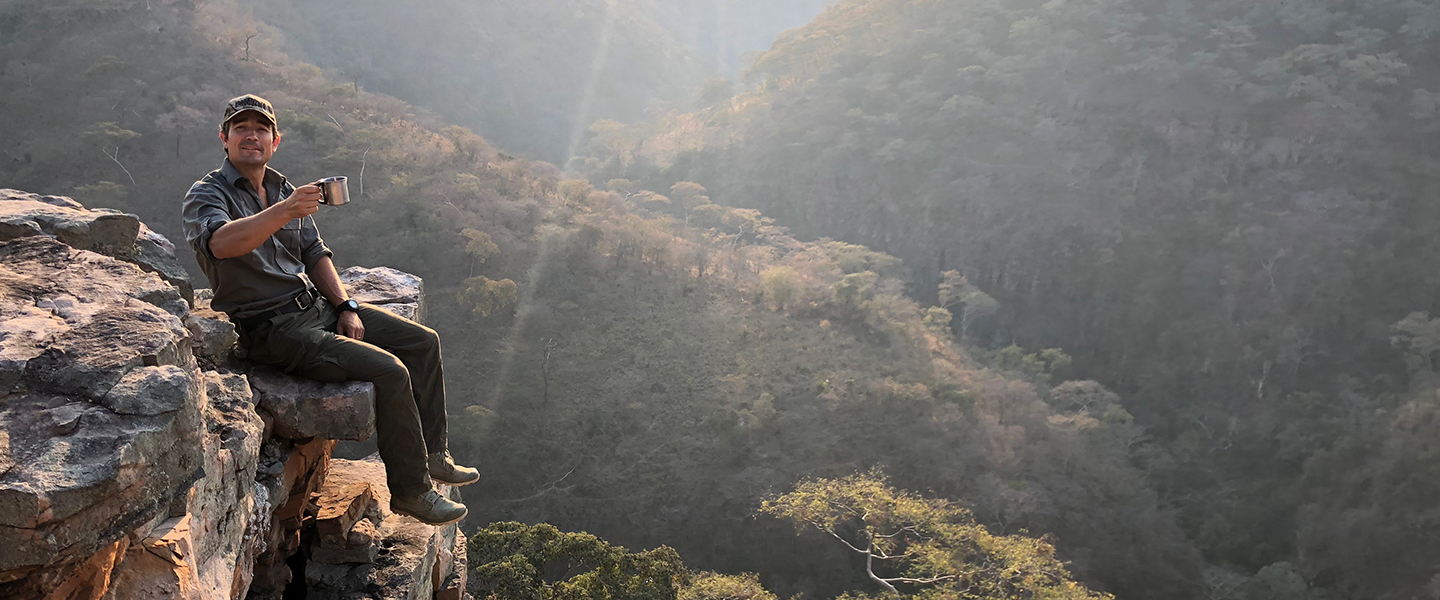On the frontline of tackling illegal wildlife trade


The illegal wildlife trade is a multi-billion-dollar industry run by the same organised criminals who are trafficking guns, people and drugs across international borders. My first experience of this convergence between different forms of crime was when I was studying the endangered Baird’s tapir – a species of tapir native to Central America – in Honduras. Over the course of my five-year study the amount of cocaine entering the country increased by 500 per cent, deforestation levels rose 700 per cent and tapir numbers dropped off a cliff.
This massive increase in drug trafficking had a terrible destabilising effect on Honduras, precipitating a security crisis that made the country one of the world’s most dangerous at the time. It also created an ecological crisis, where forests were razed, and animals killed and trafficked in a frenzy of destruction fuelled by the emergent drug market.
I was confronted by the reality that serious organised crime is not just about guns, people and drugs, it’s also about wildlife and wild places, and that if I wanted to leave the world in a better state than I found it in then I had to say goodbye to a comfortable career in academia and tackle these criminals head-on.
I started a community ranger programme in Honduras, began lobbying governments on environmental issues and training park rangers how to better protect their wildlife, and then went on to found National Park Rescue, an organisation dedicated to identifying and saving those national parks unable to cope with the poaching crisis.
In the decade before National Park Rescue started working in Zimbabwe’s Chizarira National Park, 2,500 elephants were killed, equating to 5,000 tusks entering the market because of the failure to adequately protect this one national park. In the 18 months we’ve been there, investing in the dual pillars of law enforcement and community integration, not one elephant has been poached.
We must be part of a global response by individuals, NGOs, corporations and governments to disrupt these criminal networks
These victories have been hard won. The park rangers put their lives in danger every day they are out on patrol, I’ve found myself in a Mexican standoff and my staff have been injured while making arrests. The biggest threat, of course, comes from disrupting the lucrative illegal enterprises of powerful criminal gangs and corrupt officials, but this is a risk we must take if we are to ensure that elephants, rhinos and lions are a part of our future and not just of our past.
We have demonstrated that dramatic change can be achieved by cutting off the supply at its source, but we are well aware that to have a long-term impact on the illegal wildlife trade, we – and others like us on the front line – must be part of a global response by individuals, NGOs, corporations and governments to disrupt these criminal networks, cut off their access to finance, reduce the demand for wildlife products, and stop the plundering of our natural heritage.
This requires unprecedented levels of cooperation, but extraordinary circumstances call for extraordinary measures, and with one million species threatened by extinction and global wildlife numbers down 60 per cent since 1970, it cannot be denied that the circumstances we find ourselves in are extraordinary.
For decades wildlife crime was considered a fringe issue that was largely the responsibility of well-meaning biologists. We now know that wildlife crime is a serious organised crime, highly professionalised and fuelling corruption, poverty and regional instability across the world. It is a global issue that affects us all and it won’t go away by itself. It is beholden upon us all to make a united stand if we are to prevent this ecological, human and moral catastrophe: the destruction of the living planet and the extinction of species.